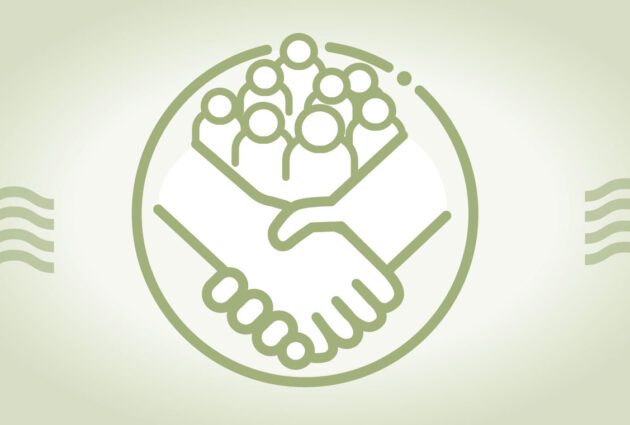COVID-19 Prevention and Intervention Services for Hmong and Other Refugee Communities
Through this initiative, we were able to build a statewide team of bilingual staff who are passionate about serving their communities.
– Mai Zong Vue, Board President of The Hmong Institute
At a Glance
Wisconsin is home to the third largest population of Hmong in the U.S., and since the 1990s, it has also been the site of resettlement of tens of thousands of newer refugees from Burma, Laos, Thailand, Cambodia, Tibet and Nepal. These communities experienced significant disparities that were exacerbated during the COVID-19 crisis. Additionally, seniors and parents in these communities were often home-bound, suffer from isolation from their peers, and jobless, while many did not have transportation for medical appointments or grocery shopping.
The Hmong Institute created a collaborative of five local Hmong agencies in Wisconsin to address the immediate needs of Southeast Asian, Burmese, Nepalese, and Tibetan elders and parents who lack access to mainstream services due to language and transportation barriers. The grant team developed a community-based infrastructure to facilitate access to food and other resources for those experiencing disparities in access and need as a result of the COVID-19 pandemic, created and disseminated culturally relevant, multilingual COVID-19 prevention messages and educational resources to ensure timely access to accurate and up-to-date information, and developed and implemented a statewide multilingual COVID-19 Community Hotline to provide information about basic health resources.
The Challenge
Low rates of English fluency and literacy among Wisconsin’s Hmong, Burmese, Lao, Thai, Cambodian, Tibetan, and Nepali communities have complicated access to health care and other resources. During the COVID-19 pandemic, mainstream messaging was not linguistically accessible to these communities, and common community sources of information and news (e.g. Hmong news/radio shows, conference lines, etc.) were not always providing accurate or comprehensive information. Thus, additional efforts must be made for individuals in these communities to access the information and resources they need to protect their families’ health.
Project Goals
The purpose of this project was to collaborate with local Hmong agencies statewide in order to address the immediate COVID-19 related needs of underserved immigrant communities across the state. Specifically, this project focused on Southeast Asian (e.g., Hmong, Laotian, Cambodian), Burmese (e.g., Karen, Rohingya), Nepalese and Tibetan elders and parents who lack access to mainstream services due to language and transportation barriers and face significant physical and mental health needs due to preexisting health disparities and post-traumatic stress disorder.
Results
The grant team successfully created a statewide collaborative of agencies across the state including: Hmong Center of Green Bay, Hmong American Partnership in Appleton, Hmong Cultural Center in La Crosse, Hmong Health Consortium in Milwaukee and Faithful Consultant in Wausau.
The grant team developed a community-based infrastructure to facilitate access to food and other resources for those experiencing disparities in access and need as a result of the COVID-19 pandemic. Statewide, the team distributed meals, foods, medicine, hygiene-cleaning products, diapers, and more to over 600 families. They produced and distributed over 5,000 culturally responsive books and workbooks for elders and parents to use in engaging with their youth. These bilingual culturally responsive books and workbooks were handed out during food distributions and local vaccine events.
The grant team created and disseminated culturally relevant, multilingual COVID-19 prevention messages and educational resources to ensure timely access to accurate and up-to-date information. Local agencies hired six part-time staff to provide case management to 300 people. These staff created bilingual videos in Karen, Burmese, Hmong, Cambodian, and Nepalese which they promoted through local and statewide social media, reaching about 400 elders and parents. Facebook engagement reached over 1,000 followers and shares, while education about COVID-19 via radio and conference lines, as well as workshops, reached over 5,000 elders and parents in communities.
The grantees also developed and implemented a statewide multilingual COVID-19 Community Hotline to provide information about basic health resources. The Hotline staff developed a directory of bilingual mental health counselors, clinicians, and health professional in Wisconsin and was promoted in Hmong, Cambodian, Laotian, Nepalese, Karen and Tibetan. The total calls received to seek COVID-19 health related issues, economic resources, mental health and referrals were less than 1,000. However, from this the grantees developed a recovery team for post-COVID-19 to continue to support targeted communities.
Looking to the Future
The grantees look forward to continuing the statewide partnership with the team developed from this project, and will continue advocating for culturally relevant food and COVID-19 education for underserved communities. The team plans to seek funds to maintain this critical bilingual case management, mental health services and distribution of culturally relevant foods statewide.
Lasting Impact
Many agencies and staff continue collaborating long after this grant period to address mental health issues impacted by the financial stress, family death, and illness during the pandemic. This project provided members of the team and staff the opportunity for statewide networking and the space to share success stories that. Together, the grant team and local agencies raised awareness and rallied support for the communities while providing case management, food, and household items to families heavily impacted by the pandemic.
Read the grant announcement
